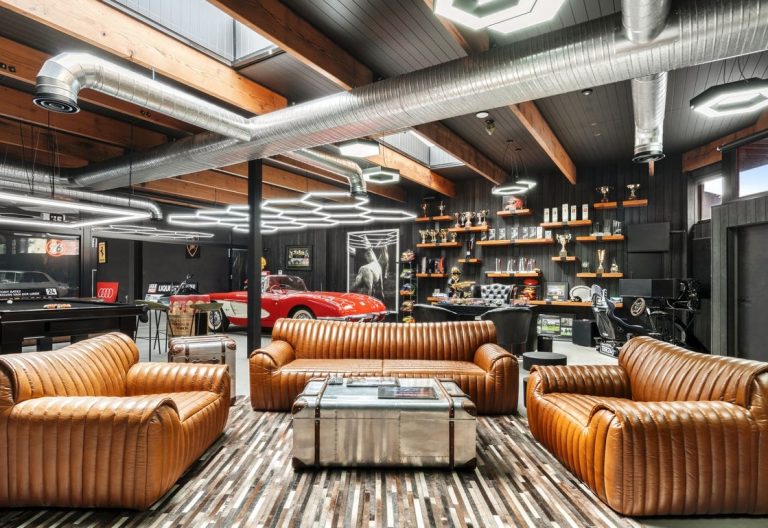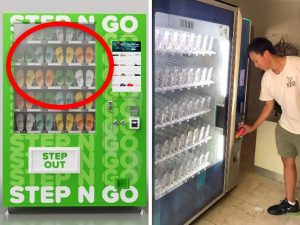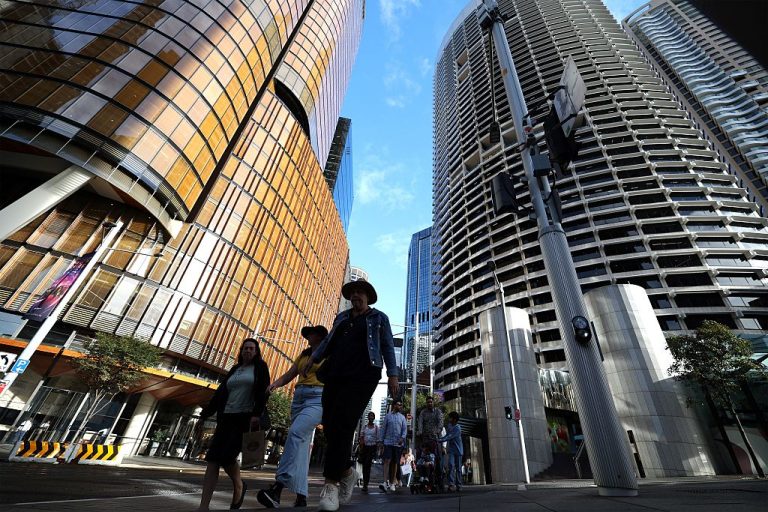Family-owned winery Patritti for sale for first time in almost a century
The future of South Australia’s last remaining suburban winery is uncertain, with developers considering other uses for Patritti’s iconic Dover Gardens site.
The sale of the Patritti winery and its McLaren Vale vineyards has drawn significant buyer interest, including from local and interstate developers keen to pursue opportunities outside of the wine industry, said selling agent John Harrison, from CBRE.
SIGN UP NOW FOR OUR FREE REAL ESTATE NEWSLETTER
“We have had inquiries from development groups,” Mr Harrison said.
“They will obviously do their due diligence on whether it will work (for other purposes) or not.
“It’s all about what people can maximise in terms of value for the property and the site – what’s the highest (return potential) and the best use.
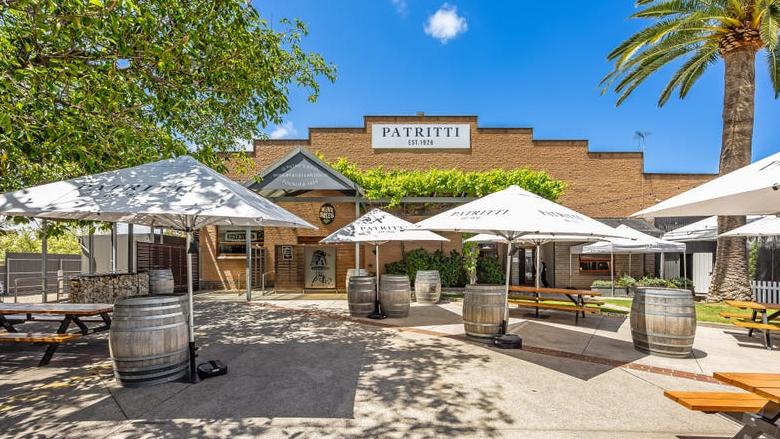
260 Whitings Rd, Blewitt Springs’ grand facade. Supplied
“The wine industry has had some challenging conditions in the last couple of years … (and) that’s where it might be more attractive for a developer to purchase it.”
However, existing wineries had expressed interest in the vineyards, which could be sold separately to the winery and cellar door, Mr Harrison said.
There was also interest from “Adelaide-based professionals (who) like the idea of having a winery or vineyard” to operate in a “potential retirement-type scenario”, he said.
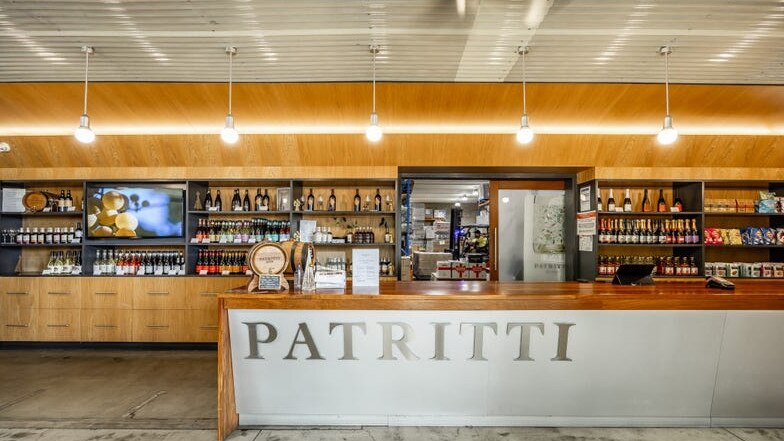
The elegant cellar door. Supplied
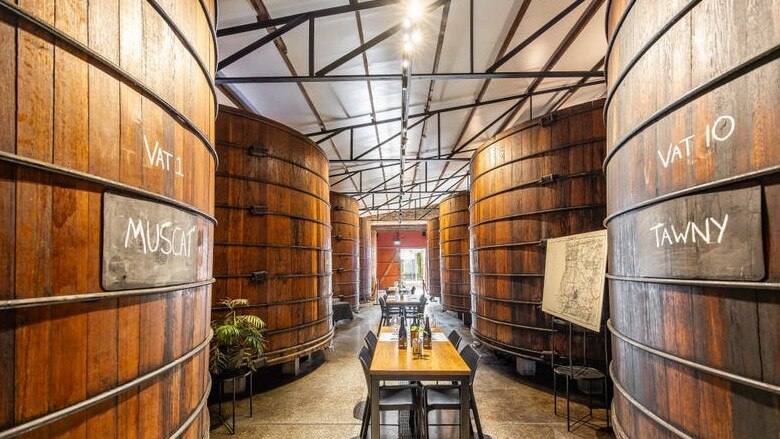
A tasting area among the vats. Supplied
Patritti is the state’s only remaining family-owned, fully-operational suburban winery, having operated from its suburban street in Dover Gardens, just 12km from the Adelaide CBD, since it was established by Italian immigrant Giovanni Patritti in 1926.
When the original vineyards that surrounded the winery were lost to urban sprawl, Patritti purchased the two McLaren Vale properties – Blewitt Springs, which now consists of 11ha of mainly old Shiraz vines, as well as Mataro and Muscat plantings, and Tatachilla, planted with about 16ha of Shiraz, Cabernet Sauvignon and old Grenache grapes.
Wine produced by Patritti also uses grapes from Marion Vineyard, which was planted in 1907, making it the world’s oldest, commercially producing urban vineyard.
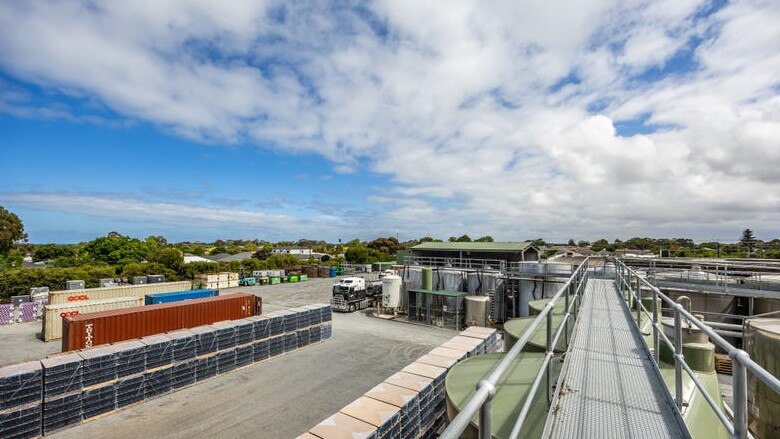
A wider look at the operation. Supplied
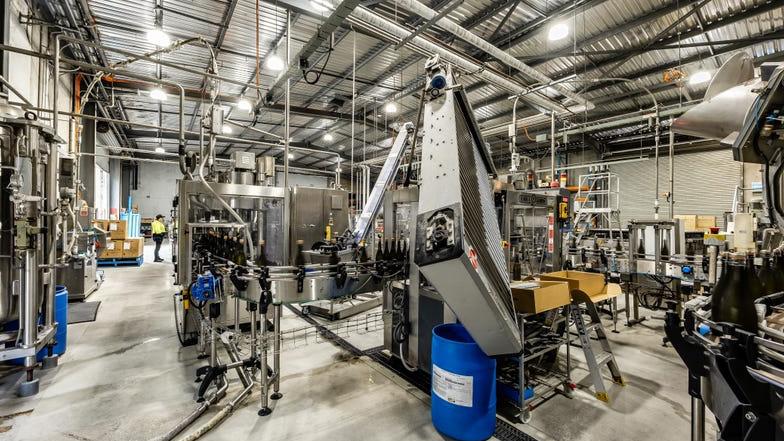
Just some of the plant and equipment. Supplied
Mr Harrison said the wine brand had a significant following, particularly in metropolitan Adelaide, and expected locals would be saddened if the eventual buyer did not continue with the business.
The sale includes the option to purchase the assets as a going concern, with the associated wine brand, labels, wine stock, consumables and plant and equipment.
Patritti general manager Justin Tiller would not comment on the sale but the Patritti board released a statement that said the decision to exit the wine industry had been difficult.
“The family decision was based on a combination of factors including the industry environment and succession considerations and comes after careful reflection on the challenges faced by the industry in recent years, as well as the unwavering commitment shown by the family, board, management and staff,” the statement said.
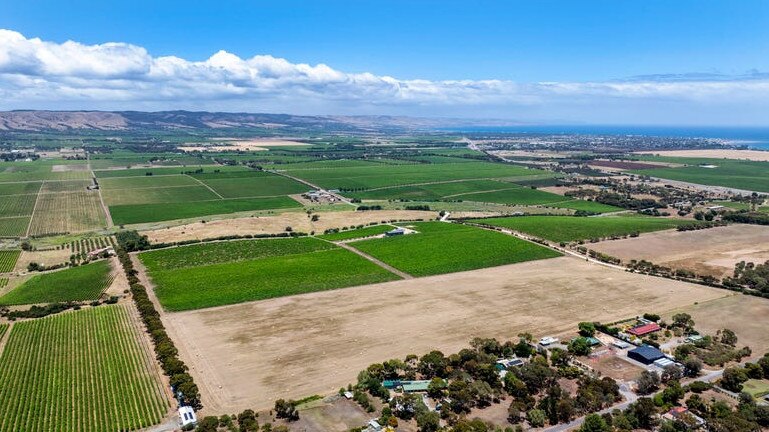
An aerial view of the vineyards. Supplied
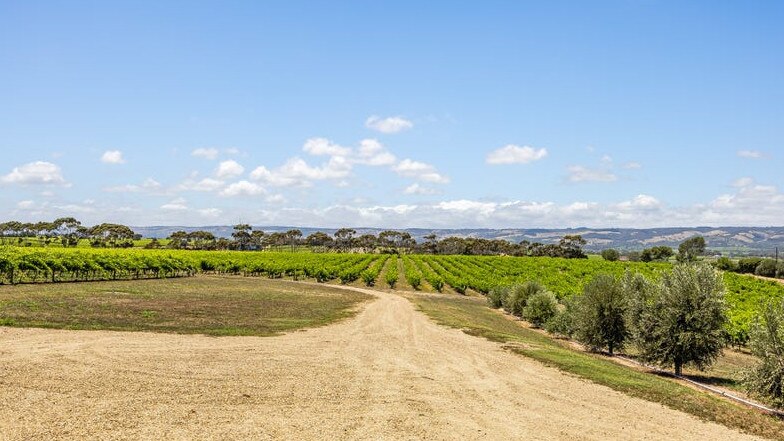
Picture perfect. Supplied
“With a well-established brand presence in both wine and juice, an operational hospitality venue and suite of contracting services, this (sale) represents a unique opportunity for prospective buyers to acquire the business as a going concern and/or explore alternative investment possibilities.”
Patritti currently employs about 45 workers, including senior winemaker James Mungall, a third generation Patritti family member who, according to the Patritti website, “first began helping out in the winery around the time he learned to walk and has worked in his family’s business ever since”.
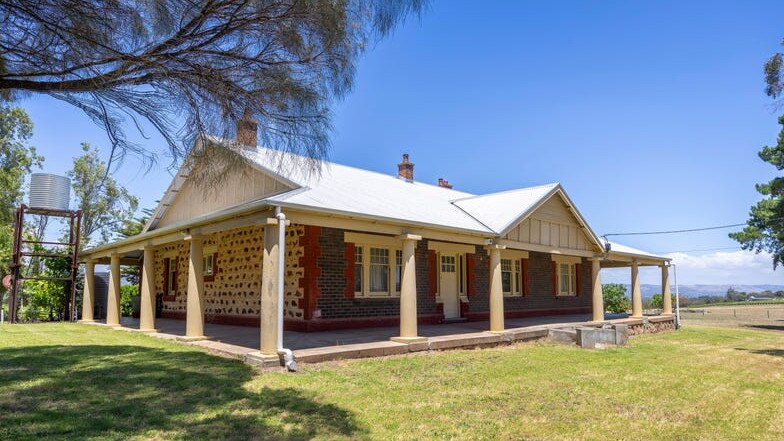
The elegant manager’s residence. Supplied
The sale is through an expression of interest campaign that closes on March 6.
No price guide has been released.

